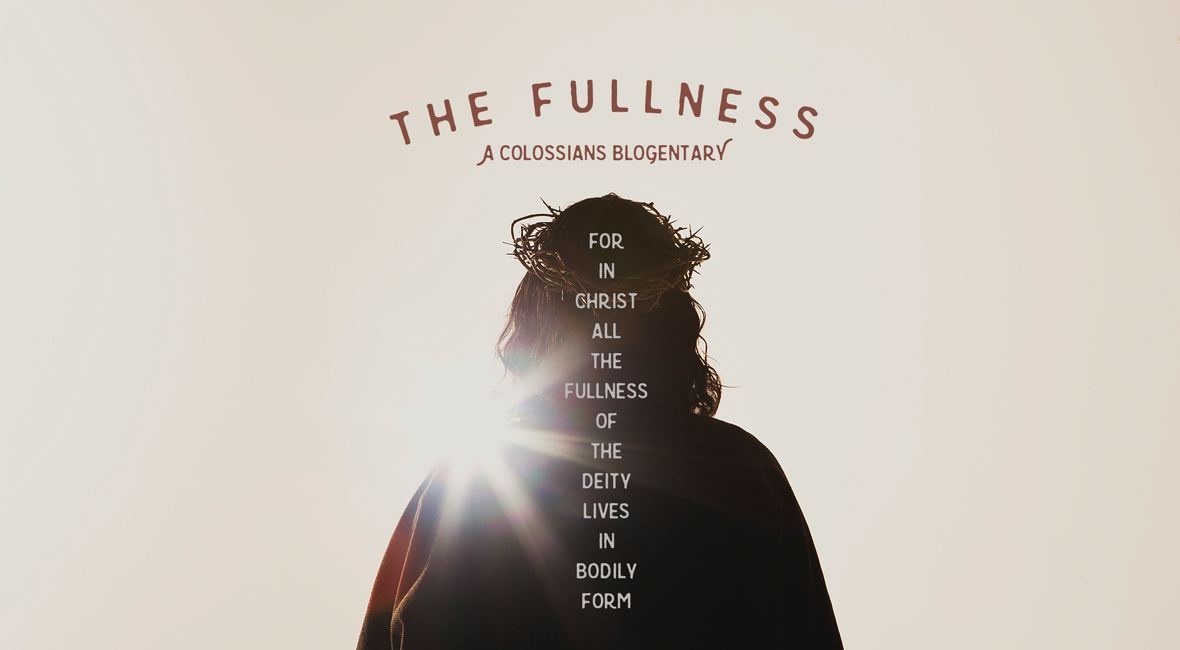The Fullness: Colossians 2:20-23

Rules – 2:20-23
20 Since you died with Christ to the elemental spiritual forces of this world, why, as though you still belonged to the world, do you submit to its rules: 21 “Do not handle! Do not taste! Do not touch!”? 22 These rules, which have to do with things that are all destined to perish with use, are based on merely human commands and teachings. 23 Such regulations indeed have an appearance of wisdom, with their self-imposed worship, their false humility and their harsh treatment of the body, but they lack any value in restraining sensual indulgence.
The first verse of this section requires two explanations. First, what does it mean that believers have “died with Christ?” In Paul’s language, to die with Christ means to be crucified with him. In other words, believers participate, in spirit, in the death that Jesus experienced in his body. This is what is symbolized in our baptism. We are buried with Christ in death as we go under the water, and we rise again to new life as we come out of the water.
Second, what does Paul mean when he talks about “the elemental spiritual forces of this world?” Interpretations vary. Several translations use the phrase “elemental spirits,” while other commentators use the term “basic principles.” In their respective translations, N.T. Wright and Eugene Peterson opt for “worldly elements” and “pretentious and infantile religion.” It is difficult to say, with precision, what Paul had in mind, but he seems to be talking about paradigmatic human spirituality, which is always full of rules but devoid of spiritual value. Humanity’s basic and universal efforts to be better are useless, and therefore ought to be rejected.
Humanity’s basic and universal efforts to be better are useless, and therefore ought to be rejected.
In fact, quite the contrary. We are not to reject what God has provided. In his letter to Timothy, Paul tells his young apprentice that it is God who “richly provides us with everything for our enjoyment.” More dramatically, God gave Peter a vision (Acts 10:9-23) of a sheet filled with all the animals of the earth, both clean and unclean, and commanded Peter to “kill and eat.” In this vision, God declared all food clean, removing the rules and regulations of the ancient food laws.
While these rules may appear to have the benefit of wisdom, they are, in fact, the epitome of foolishness. There are four fundamental problems.
First, their worship is self-imposed. This means that the worship derived from asceticism is not the worship that God demands, but rather the worship that we invent. We place the burden of human spirituality upon ourselves, much to our poverty. Jesus teaches us that the worship that God requires is worship done “in spirit and in truth.” In other words, we don’t set the rules of worship, God does.
True humility, like all Christian virtue, is a matter of the heart.
Third, these rules command the harsh treatment of the body. Though God has commanded us to have occasional fasts, he never commanded us to treat our bodies harshly. In fact, the second greatest commandment, “Love your neighbor as yourself,” assumes that we care for our bodies. But pagan worship often involved physical duress (like the way the priests of Baal slashed themselves in the showdown with Elijah) that, if extensive enough, could lead to hallucinations. These hallucinations were interpreted as spiritual experiences or encounters with angels, but Paul rejects them out of hand.
Finally, these human religious rules lack any value in restraining sensual indulgence. In other words, they are incapable of transforming the human heart. This is not how we become holy. “Genuine holiness, which is an anticipation of the life of the age to come into which the risen Christ has already entered, is not to be had by methods whose very nature, focusing as it does on perishable material things, binds them to the present age.”[iv] We do not become like God by following human rules. Instead, we are made holy when we die to this futile way of pursuing holiness, and instead rise to new life in the resurrection of the Holy One, Jesus Christ.
The Takeaway
One of the fallacies that is easy to commit when we study a passage like this is to assume that all religious rules are to be rejected out of hand. “I can do whatever I want,” the thought goes, “because I am saved by grace.” Well, you may be saved by grace, but that doesn’t mean you can do whatever you want. Paul’s point isn’t that religious rules are bad in and of themselves. His point is that anything that does not come from Christ is useless in: a) saving us, and b) making us better. As long as our religion is disassociated from Christ, it lacks any power to transform our hearts or bring us to salvation. We still have to follow the rules of Jesus. The Bible is clear that obedience, love, and faith are intimately connected.
As long as our religion is disassociated from Christ, it lacks any power to transform our hearts or bring us to salvation.
[i] Wiersbe, W. W. (1996). The Bible exposition commentary (Vol. 2, p. 131). Wheaton, IL: Victor Books.
[ii] Melick, R. R. (1991). Philippians, Colossians, Philemon (Vol. 32, p. 278). Nashville: Broadman & Holman Publishers.
[iii] Philippians 2:7-8
[iv] Wright, N.T. (1986). Tyndale New Testament Commentaries: Colossians and Philemon (p.133). Downers Grove, IL: IVP Academic.

